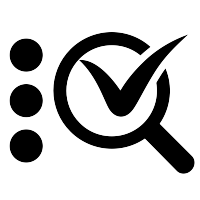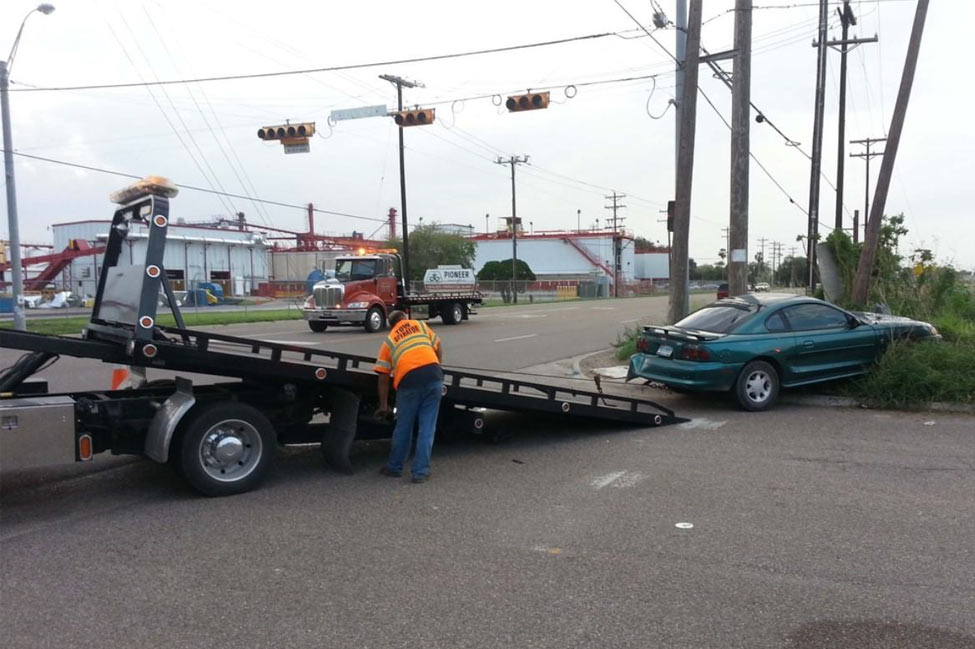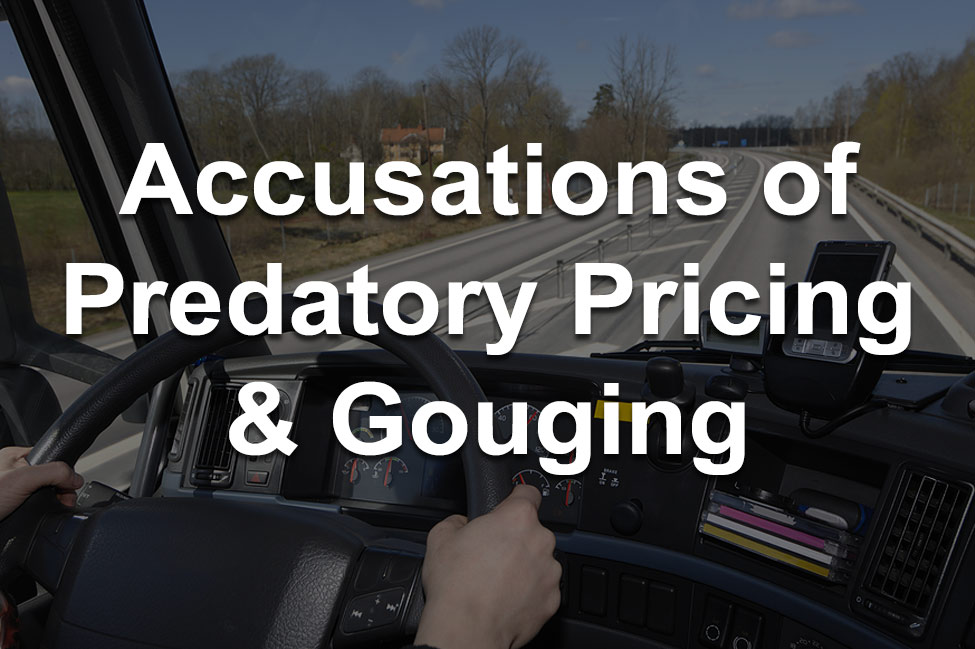In The Tow Academy’s never-ending mission to inspire you to create a highly profitable towing business you will love, today we are going show you a simple approach to, how to determine your average cost per tow. Knowing this information can help you across the board. When it comes to making a decision whether to become a contracted provider or an out-of-network provider for the motor clubs, deciding whether or not to tow for the auction houses, becoming contracted with 3rd party police dispatching companies, and many other areas of your business.
Why Should You Know Your Average Cost Per Tow?
Have you ever had one of those days where the phone has ceased to ring? You know, it’s been 4 hours of nothing, and paranoia is beginning to seep-in. You start to wonder if it’s you. You then play a familiar movie in your head where every other towing company in your city is as busy as little bees, running call after call, and you’re just sitting there on the sidelines, hoping…PRAYING…for the damn phone to ring.
We’ve all had those days, and it’s precisely because of those days that some of us have fallen for the trap of accepting less than what we’re worth for the services we provide. You know what I’m talking about, running a $35-dollar tow and knowing it was a wash. Well, no more hiding your head in the sand. You need to know your average cost per tow because, without it you are more susceptible to giving-in to the temptations of running calls for nothing.
Make The Best Use Of Your Limited Time
Each one of us is allotted the same 24 hours every day, the same 8,760 hours every year. Our lives span, on average, 80 years, which gives us each about 700,000 hours to live on this planet. I mention this because, only once you realize how severely your time is limited, might you begin to understand the importance of properly valuing your time and therefore pricing your services accordingly.
Money is just a story we all believe in. A piece of paper or digits in your bank account that hold no intrinsic value, but when you need goods or services it is easily exchanged. Why? Because the other guy believes in this story as well. The person selling those goods and services knows he too can use these same pieces of paper, or digitally transferred ones and zeros to purchase whatever he needs.
We all need money to survive and provide for our families. But, I’m sure you would agree that, since our time is severely limited, it would be in your best interest to get the best possible return on your investment.
Three Ways To Make Money
There are basically 3 ways to legally acquire money here in the United States.
Direct Trade:
The first is a direct trade, time for money. Hourly workers, commission based workers, and salaried workers trade their time for money. So do many business owners. If you are currently a single operator towing business and you use your tow truck to drive to someone’s location and then tow their car to its destination, in exchange for money, that is a direct trade of time for money.
Leveraging Assets:
The second way people legally acquire money is through leveraging assets. If you are a hands-on business owner who has employees and equipment, and you utilize these assets to provide services or produce goods, you are using leverage to acquire money. Of course, you are still trading your time as well because you are managing these assets, but usually the return on investment is much greater. Investors use leverage as well, investing money acquired through various means, into real estate, stocks, or other businesses. This is done in the hopes that their investment will provide a decent return.
Creating Works:
The third way people legally acquire money utilizes the first 2 methods in combination with creativity. Writers, inventors, painters, entrepreneurs, and entertainers earn money by creating something of value. If what they have created is exceptional and thousands or millions of people want to consume it, they will have traded their time to create something, one time, that they can then sell over and over again.
Towing Revenue Does Not Equal Profits
Whether you are a single operator towing company who wants to grow, or a tow company owner who employees dozens of tow truck operators, your aim is to acquire money through leveraging assets. This is how you bring money into your business. However, this is not how you determine profits. Revenue does not equal profits.
Many business owners, large and small, mistakenly believe that the proof of a successful business is either more revenue or the acquiring of assets. Somehow their thinking has become twisted and, rather than focusing on profits, they focus on things that don’t move their business forward.
With some the focus is on rock-bottom pricing, or having more and more trucks, with others the focus is on working for every motor club out there, even if it’s at a loss. They rationalize these choices by suggesting that if they didn’t operate in this manner, a competitor might swoop in and get a foothold.
This might have been the old way to grow a towing business, but no more. Today, this kind of rationale only leads to more debt, lower quality operators, and bad service, all of which will eventually put you out of business.
The right way to grow your towing business into a big business is to first learn how to operate your small business at a profit. The next step is disciplining yourself to continue doing so as you grow, but that’s for another post. To know if your business is operating at a profit you need to know your average cost per tow. Before you can learn your average cost per tow, you need to know the costs associated with providing towing services.
Costs Associated with Providing Towing Services
Depending upon who you ask, there are various ways to determine the costs associated with providing towing services. The instructions here are not for accounting purposes, they are to provide you with a clearer understanding of the costs associated with providing these services, so that you set your rates in such a manner that allows you to make a decent profit.
For our purposes here, when determining CAPS, (Costs Associated with Providing Services), we want to use only those expenses directly associated with running these “calls.” We do this to ensure that you arrive at a valid average cost per tow. For example, rent paid on a building or lot used for your towing business would be considered a part of CAPS but principal paid on a mortgage used for your towing business would not. Although the interest expense paid on that mortgage would be considered part of CAPS. The same goes with your truck payments. Principal paid on a truck note would not be considered CAPS, but the interest expense paid would be.
Other examples of CAPS include: Fuel, Insurance, Repairs & Maintenance, Tow Truck Operator Payroll, Dispatch Payroll, Payroll for Bookkeeping & Admin, Telephone Expense, Marketing Expense, Uniforms, Damages, Invoice books, Licenses, Legal Fees, and other costs directly associated with providing towing services.
The assumption here is that you have all of the equipment needed to provide the services of a towing company. Besides having the trucks, you have all of the straps, chains, wire ropes, jacks, and other tools necessary. If you need to replace or repair a tool, then you’ll want to include those expenses as a cost associated with providing services. You want to be careful though, attempting to include major purchases of equipment as a cost associated with providing services. For our purposes here, doing this is not a good idea. These are assets and can be depreciated on your tax return, and sold if necessary, so exclude them to get your true ACPT.
Again, this is not a lesson in accounting and should not be construed as such. If you have questions consult your bookkeeper or accountant for further assistance.
How To Determine Your Average Cost Per Tow
For our purposes here, when discussing average cost per tow (ACPT), the term “calls” is taking into consideration every type of call you perform, not just tows. Here “calls” includes service calls and recoveries as well. And for every type of customer; law enforcement, motor clubs, cash calls, auction companies, and even the junk cars you buy. Of course, you could break it down by the various revenue sources but only if you’ve kept accurate records where you’ve broken down monies received from each revenue source as well.
Determining your average cost per tow (ACPT) is relatively simple. The first thing you need to understand is that your ACPT is constantly changing. Due to the fact that revenue trends are inconsistent in most towing businesses, to get a better grasp on what your true average cost per tow is you need to look at a larger span of time. So, we believe that the best way to determine your ACPT is to use annual numbers.
Your average cost per tow (ACPT) is determined by dividing your annual Costs Associated with Providing Services (CAPS) by the number of calls you ran during that same period.
Example:
Let’s say a towing company by the name Extreme Towing has done the work and determined that their CAPS for 2017 was $317,000. The number of calls they ran in 2017 was 9675. The math then works like this: (CAPS ÷ # of Calls = ACPT) – [ $317,000 ÷ 9675 = $32.76 ] So, Extreme Towing’s ACPT for 2017 was $32.76. On average, each call they ran cost them $32.76.
Using Your Average Cost Per Tow
Now that you know how to calculate your average cost per tow, the next step is determining how to use this information. First, understand that as your business grows there will be a number of things that can either increase your average cost per tow or decrease it. Even though increasing the number of calls you run per year will increase your CAPS, with regard to fuel, payroll, repairs, maintenance, and other expenses, this increase can have a disproportionate effect on your average cost per tow due to economies of scale. That is if you are wise and don’t increase CAPS unnecessarily.
Because of the effect of economies of scale and to ensure that you are pricing your services so that you continue to be profitable and competitive in the marketplace, we suggest that you measure your average cost per tow, at least once every 6 months.
Once armed with this information, knowing that their average cost per tow is $32.76, the owner at Extreme Towing can then make better decisions about his business. And, knowing that his time is limited here on this planet, rather than working for motor clubs who offer $35.00 for a tow, he can choose to market his business so that cash paying customers, those willing to pay $85 for the same service, will use his services.
Rather than determining your rates simply by undercutting competitors, or worse yet, using the dart-board approach, knowing your average cost per tow, and then using that information to properly price your services so that you profit consistently will ensure your business of continued success.










Leave A Comment